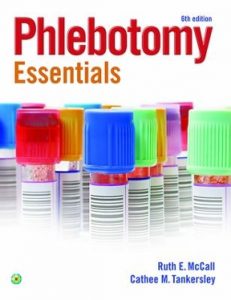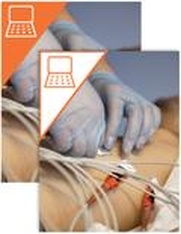EKG Course Description |
TUITION & BOOK |
||||||||
| This course will include important practice and background information on the anatomy of the heart and physiology, medical disease processes, medical terminology, medical ethics, legal aspects of patient contact, laboratory assisting electrocardiography and echocardiography. Additionally, students will practice with equipment and perform hands-on labs including introduction to the function and proper use of EKG machine, the normal anatomy of the chest wall for proper lead placement, 12-lead placement, and other clinical practices.
This comprehensive 50-hour course will prepare students to take the NHA EKG Certification exam. EKG Technicians work in hospitals and cardiac care facilities. One of the fast track careers in the medical field is employed as an EKG technician, this career choice is on the rise, and demand is expected to grow much faster than the average. |
SPECIAL OFFER: $899.00 COVERED BOTH CLASSES EKG & PHLEBOTOMY
|
||||||||
| To be successful in this course plan to spend time preparing for each class; reading ahead, studying from the previous class material, etc. Every student is different, so you should plan to spend about 2 hours studying and reading for every hour that you spend in the classroom.
Certificates – to earn a Certificate of Completion you must successfully complete the following:
|
|||||||||
PHLEBOTOMY Course Description |
TUITION & BOOK |
Skill development in the performance of a variety of blood collection methods using proper techniques and standard precautions. Includes vacuum collection devices, syringes, capillary skin puncture, butterfly needles and blood culture, and specimen collection on adults. You will learn to:
Students are required to wear scrubs and closed toe shoes to every class session. |
 
This 60-hour classroom/lab course will prepare you to enter the workforce as a trained phlebotomist. After completion, you will be eligible for the certification exam. This is a great certification to add to your skills as a Nurse Aide, Medical Assistant, Home Health Aide or Certified Nurse Aide.
|

